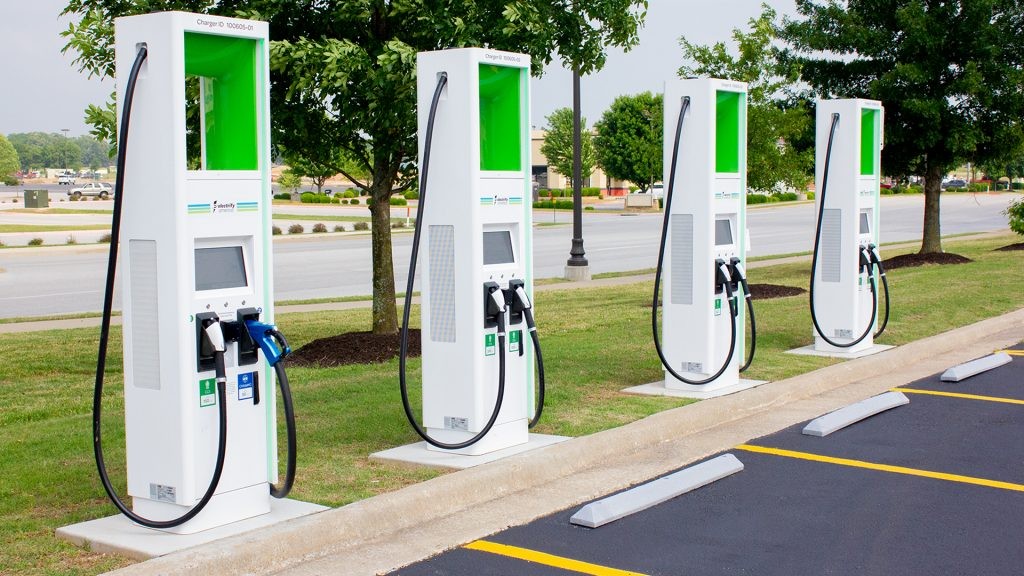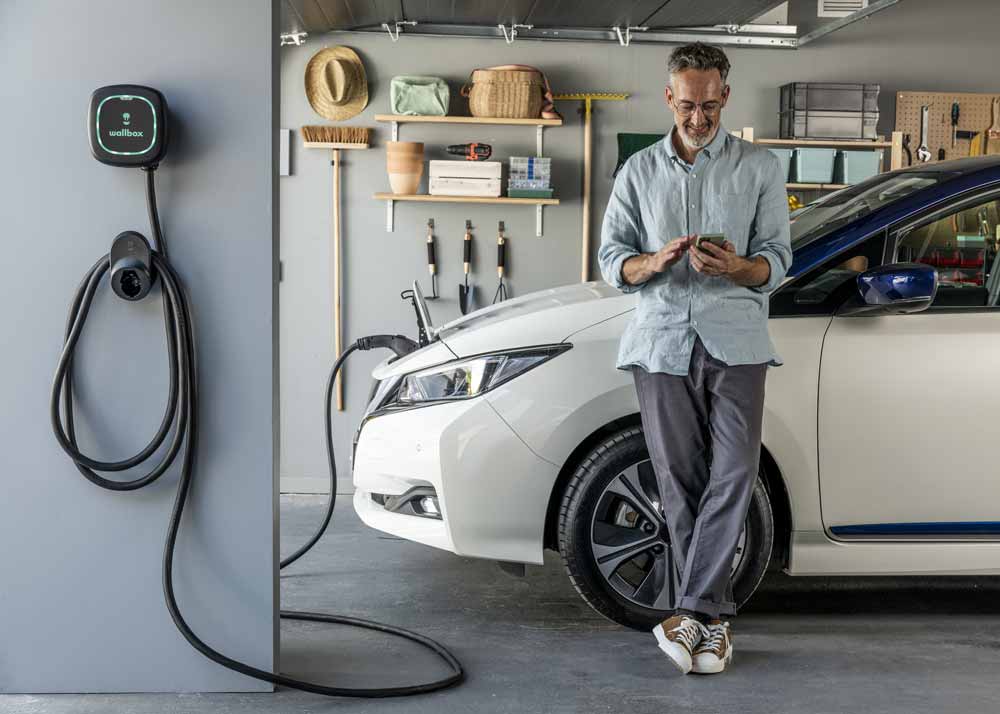An EV charger installer plays a crucial role in the growing adoption of electric vehicles (EVs) across Houston. As more drivers switch to electric cars to save on fuel costs and reduce their carbon footprint, the demand for home charging stations is on the rise. However, installing an EV charger involves more than just plugging into a wall outlet. It requires a skilled and reliable installer to ensure that the setup is safe, efficient, and fully compatible with your vehicle. Finding the right installer is key to enjoying a seamless EV charging experience at home
Choosing the right EV charger installation service is crucial, whether you’re installing a charger for residential use or for a commercial property. Hiring a certified electrician or master electrician with experience in EVSE (Electric Vehicle Supply Equipment) installations ensures peace of mind, safety, and compliance with local regulations.
Understanding Your EV Charger Installation Needs
Before you embark on the journey of installing an EV charger, it’s essential to understand your specific needs to ensure the right charger and installation process for your home or business.
Identifying the Right Type of Charger for Your Vehicle
There are several types of chargers available, each designed to suit different types of electric vehicles (EVs).
Level 1 chargers are the most basic and are typically used for home charging with a standard 120-volt outlet. These chargers are slower, adding approximately 2 to 5 miles of range per hour, making them ideal for vehicles with shorter daily commutes or those who don’t mind waiting for a full charge overnight.
Level 2 chargers, on the other hand, operate at 240 volts and offer much faster charging speeds, providing up to 25 miles of range per hour, making them suitable for drivers with longer commutes or frequent usage.
Finally, DC fast chargers are the fastest option available, typically used in public charging stations, and can charge a vehicle to 80% in as little as 30 minutes. The type of charger you choose will depend on your specific vehicle model, whether it’s a Tesla, Ford, or Nissan, and how much range you need based on your daily commute and driving habits.
Evaluating Your Home’s Electrical System Compatibility
Before beginning the installation process, you’ll need to ensure that your home’s electrical system can support the demands of an EV charger. This includes evaluating the wiring and overall capacity of your home’s electrical panel to ensure it can handle the additional load. A master electrician can assess the system’s capacity, check for necessary upgrades to wiring, and ensure that the installation complies with local regulatory requirements.
It’s important to understand that some older homes may need electrical upgrades to accommodate a home charging station. Properly evaluating your electrical system with a certified professional helps prevent potential issues and ensures a smooth and safe installation process for your electric vehicle charger.
Selecting the Best EV Charger Installer in Houston
When it comes to installing an EV charger at your home or commercial property, choosing the right installer is critical to ensure a safe, efficient, and compliant setup. In Houston, where electric vehicle adoption is rising, it’s essential to hire a professional who can guarantee the proper installation of your charging station.
Certifications and Experience to Look For
A professional installer must possess the necessary certifications, such asEVSE (Electric Vehicle Supply Equipment) and be a Master Electrician. These certifications demonstrate that the installer has the expertise to handle complex electrical systems and EV charger installations. Look for an installer with experience in both home use and commercial properties as the requirements may vary.
A certified electrician familiar with local utility companies and regulatory requirements in Texas is also crucial to ensure compliance with state laws and safety standards. Proper certification assures that your installation will be completed according to industry standards, minimizing risks and ensuring long-term functionality.
Reading Reviews and Asking for References
Before hiring an installer, it’s essential to do thorough research by reading online reviews and asking for references from previous clients. Positive reviews can provide valuable insight into the installer’s quality of service, reliability, and customer satisfaction. Conversely, negative feedback may indicate subpar service or issues with the installation process.
Additionally, you want to find an installer who is experienced in creating energy-efficient solutions. An installer who emphasizes cost savings, energy efficiency, and long-term savings will ensure that your charging station is not only functional but also operates in an environmentally conscious manner.
The Installation Process Explained
Once you’ve selected a certified and reliable EV charger installer for your Houston home or business, it’s important to understand the process to ensure a smooth and successful installation.
What to Expect During the Installation?
The installation process begins with an initial consultation where the installer will perform a site inspection to evaluate the existing electrical system and determine the optimal location for your EV charging station. During this consultation, the installer will assess the compatibility of your home’s electrical system, including the wiring and whether any upgrades are necessary.
A clear installation plan will be developed based on these findings, ensuring that the charger installation will meet your needs and comply with local regulations. The installer will take care of all the technical aspects, ensuring that the installation is safe and efficient.
Post-Installation: Testing and Safety Checks
After the EV charger is installed, the final steps involve conducting thorough testing to ensure the charger is fully functional. This includes checking for proper operation, ensuring that all safety measures are in place, and verifying compliance with local codes. The installer will also perform safety checks to confirm that the charging station is securely installed and will not pose any risks to users. With these post-installation checks, you can have peace of mind knowing that your electric vehicle is ready to charge safely and efficiently.
Cost Considerations for EV Charger Installation
When considering the installation of an EV charger in Houston, it’s essential to understand the various costs involved. The total price of charger installation services can vary based on several factors, including the type of charger, the complexity of the electrical system, and the location of the installation.
Breaking Down the Installation Costs
The cost of installing an EV charger generally includes labor, wiring, and the equipment itself. The installation price may increase if electrical upgrades are necessary, such as expanding the home’s electrical panel or installing new wiring to accommodate the charging station. For residential use, the cost will typically be lower than for commercial properties, where larger, more powerful charging solutions may be required.
When comparing home EV chargers with fast chargers, keep in mind that fast chargers (DC chargers) are generally more expensive, both in terms of equipment and installation costs, due to their higher voltage and the need for specialized installation procedures.
Available Rebates and Incentives in Houston
In Houston and across Texas, several rebates and incentives are available to help offset the cost of installing an EV charger. Many utility companies offer incentives that promote energy efficiency and the reduction of carbon footprints. These programs can cover a portion of the installation cost, making it more affordable for homeowners and businesses.
For example, certain rebates may be available for installing Level 2 chargers in residential properties, while others may focus on energy-saving upgrades for commercial properties. Additionally, state and federal programs may provide further cost savings by subsidizing the purchase and installation of EVSE equipment. Take advantage of these programs to reduce your overall investment in an electric vehicle charging station.
Discover the Best EV Charger Installation Solutions in Houston
Selecting a reliable and certified EV charger installer is crucial for ensuring a safe, efficient, and compliant charging solution in Houston. By evaluating the right type of charger for your electric vehicle, considering local regulatory requirements, and utilizing available incentives, you can optimize both the performance and cost-effectiveness of your EV charger.
If you’re ready to take the next step in sustainable driving, RJT Construction offers professional, certified EV charger installation services in Houston, TX, ensuring that your installation is done right the first time. Contact us today for expert consultation and installation!





